
Report | 2023-2024

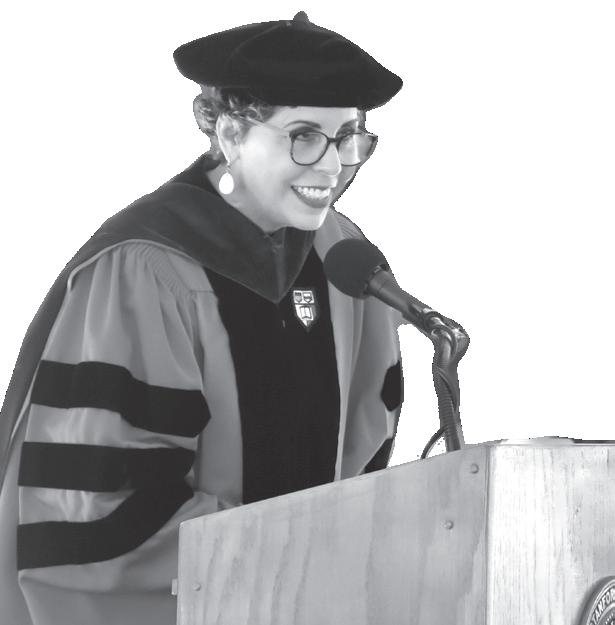






Report | 2023-2024






AY 2023-2024 was a challenging, if vibrant, year at the Center for Comparative Studies in Race & Ethnicity. From the day in October that Hamas fighters broke through the militarized border to launch an attack on Israel, a violent conflict resulting in the deaths and near starvation of tens of thousands of people throughout Gaza and the West Bank has been ongoing. The conflict, although occurring half a world away, was felt as a presence at almost every event and class sponsored by CCSRE this past year. In this we were not alone. Protests and counterprotests took place at university campuses across the nation; several congressional hearings on antisemitism were held in Washington, D.C.; and a court case against Israel for the genocide of Palestinians was filed at the International Court of Justice in The Hague.
Because understanding the history and politics of the region is difficult, CCSRE sought to play an educational role for our students. We created a resource on our website featuring readings suggested by faculty affiliates who have thought deeply about Zionism, empire, Palestine, peace, and terrorism. We co-sponsored events with Jewish Studies that explored antisemitism and partnered with the Markaz Center to support the CCSRE-Markaz Palestine undergraduate fellow. We worked with the Stanford Humanities Center to bring Dr. Sahera Bleibleh as an International Visitor and hosted a special Chautauqua focusing on U.S. interventionism and global migration with Stanford sociologist Asad Asad and writer Javier Zamora. Additionally, we piloted several core courses that sought, with varying degrees of success, to address complex issues of empire, colonialism, and militarization—as well as ongoing efforts to promote peace and justice in the U.S. and abroad.
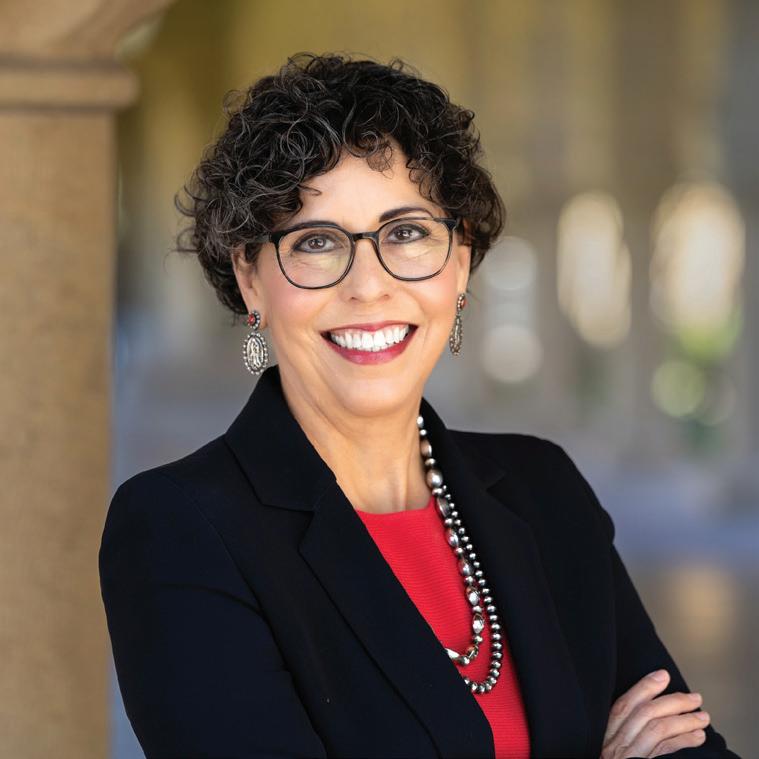
But we also sought joy. Highlights of the year were our many moments of fellowship—from the Building 360 Open House to the Community-Based Research Symposium; from our Mellon Arts Fellows performances to our Faculty Seminar Series and Chautauqua events; from a “Rest as Resistance” event hosted by undergraduates to our Honors Symposium and our Commencement ceremony in June.
With the recognition that we do not yet live in a just world, I nevertheless hope for a more hopeful, peaceful, and just future for us all.
Danily C. and Laura Louise Bell Professor of the Humanities Professor of English and, by courtesy, of ILAC and DAAAS
Burton J. and Deedee McMurtry University Fellow in Undergraduate Education

Paula M. L. Moya (English) Faculty Director

Teresa LaFromboise (Graduate School of Education) Faculty Director of Native American Studies

José David Saldívar (Comparative Literature) Faculty Director of Chicana/oLatina/o Studies

Annie Atura, PhD Executive Director
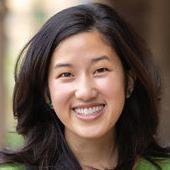
Thaomi Michelle Dinh, PhD Associate Director of Asian American Studies

Byron Barahona, MA Core Curriculum Coordinator
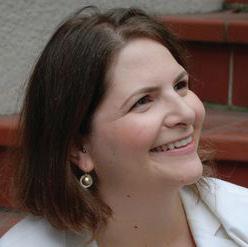
Shaina Hammerman, PhD Associate Director of Jewish Studies

Raquel Navarro Calara Administrative Associate and Academic Programs Coordinator

Alfredo J. Artiles (Graduate School of Education) Faculty Director of the Research Institute

Stephen M. Sano (Music) Faculty Director of Asian American Studies
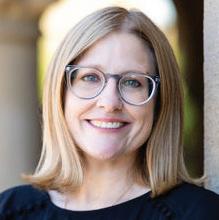
Amy Potemski, MA Administrative Director

Gina Hernandez-Clarke, MLA Interim Associate Director of Chicana/o-Latina/o Studies

Heidi M. López Finance Assistant and Administrative Associate

Ramón Saldívar (English and Comparative Literature) Faculty Director of Academic Programs
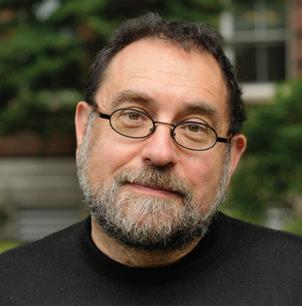
Steven J. Zipperstein (History) Faculty Director of Jewish Studies
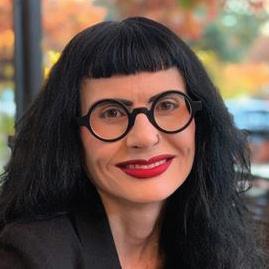
Bridget Algee-Hewitt, PhD Senior Associate Director of the Research Institute

Winni Ni, MA Student Services Officer

Kenia Blanco Álvarez Research Institute Coordinator
CCSRE, along with the Department of African and African American Studies and the Taube Center for Jewish Studies, hosted the annual Building 360 Open House to welcome students, faculty, and staff to the new academic year. All were welcome to join the community, eat lunch, and learn about the many degree-granting programs in the building.
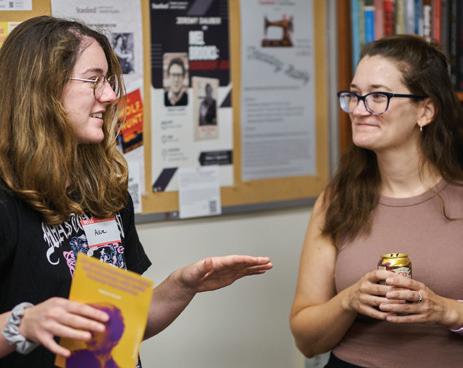
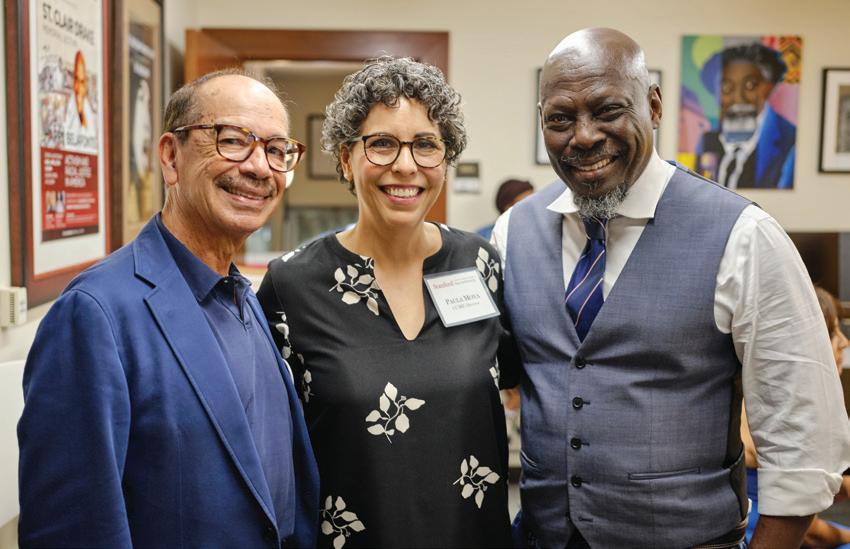


Hien Do, Asian American Studies
Katherine Nasol, Asian American Studies
Ignacio Ornelas Rodriguez, Chicana/o-Latina/o Studies
Abiya Ahmed, CSRE
Maytha Alhassen, CSRE
Karen Y. Morrison, CSRE
Valerie Red-Horse Mohl, CSRE
Michael Wilcox, CSRE and Native American Studies
Jacob Daniels, Jewish Studies
JoEllen Anderson, Native American Studies
Janet K. Bill, Native American Studies
Sterling HolyWhiteMountain, Native American Studies
Brett Shelton, Native American Studies
Delphine Red Shirt, Native American Studies
Carson Smith, Native American Studies
ENROLLMENT BY THE NUMBERS (AS OF MAY 2024)
CCSRE undergraduate and graduate programs advance racial equity through interdisciplinary training, innovative research, and community engagement.
The Program in Comparative Studies in Race & Ethnicity (CSRE) explores how race and ethnicity shape global history, undergird our social systems, and touch every aspect of our lives. Our interdisciplinary courses empower students with the tools to assess and build inclusivity, equity, diversity, accessibility, and justice.
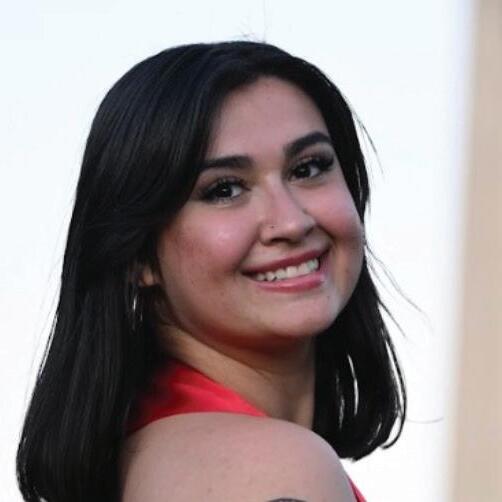
Featured student: Emily Rodriguez
CSRE major Emily Rodriguez’s subplan in Politics, Policy, and Equity focused on income and racial inequality and grounded her advocacy for equity, support, and inclusion for first generation, low-income students on campus. As the CSRE Liaison, she crafted the biweekly undergraduate newsletter. Her senior capstone project on “How to Support FLI Students @ Stanford” captures much of the knowledge and lived experience that Emily and her fellow FLI peers gained while at Stanford.
Featured event: Celebration of Knowledge for CSRE 100: Introduction to Comparative Studies in Race and Ethnicity
Professor Jonathan Rosa’s “Introduction to Comparative Studies in Race and Ethnicity” class welcomed students and teachers from Sequoia High School in Redwood City. Stanford students used their final assignment to create a high school ethnic studies curriculum that could be taught at Sequoia. Sequoia teachers and students then reviewed the curriculum projects and identified 15 of them to be showcased during a “Celebration of Knowledge.” Projects focused on topics including histories of sterilization, the politics of interracial intimacy, Islamophobia, abolishing billionaires, and diasporic music.
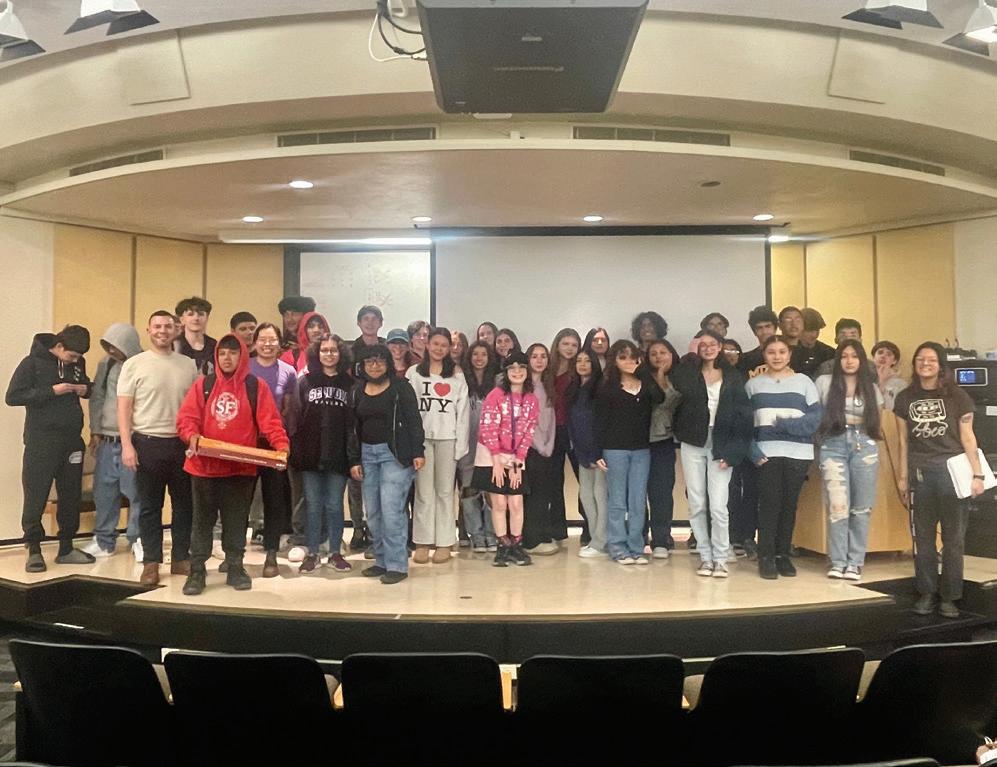
Featured course: Entrepreneurship for Racial Equity and Social Impact
Taught by CCSRE National Advisory Board Chair Valerie Red-Horse Mohl, “Entrepreneurship for Racial Equity and Social Impact” (CSRE 161P) encourages an entrepreneurial mindset and a focus on operating businesses in diverse communities with social impact and racial equity as core principles. Mohl invited in business professionals who shared real-world experiences. A student enthused, “This has been one of the most important classes I have ever taken. . . . it successfully fostered conversations about race, equality, and justice around entrepreneurship.”
Asian American Studies encompasses a diverse range of peoples, cultures, and academic foci. Our course offerings draw not only from the Humanities and Sciences, but from the Schools of Medicine, Law, and Education as well. This year, AAS held a joint film screening and panel on Japanese American incarceration, welcomed scholars for guest lectures, sponsored students to attend the annual Association of American Studies Conference, held a student activism panel, and more.
Featured lecture: David Henry Hwang
Together with the Office for Religious & Spiritual Life and other co-sponsors, AAS welcomed Stanford alumnus David Henry Hwang ‘79 to give the Rathbun Lecture on a Meaningful Life in Stanford’s historic Memorial Church. Hwang is best known as the author of M. Butterfly, which won the 1988 Tony, Drama Desk, John Gassner, and Outer Critics Circle Awards and was a Finalist for the 1989 Pulitzer Prize.
Featured event: Teach-In: Abolition in Asian America
AAS and the Asian American Activities Center hosted a teach-in on Abolition in Asian America. Led by Dr. Michelle Dinh, the event featured Dr. Samia Shoman and Dr. Katherine Nasol. Panelists shared expertise on abolition in Asian American history, from Native Hawaiian resistance against militarism to solidarity against colonial violence in Palestine. The teach-in culminated in a collaborative zine in which students enrolled in Introduction to Asian American Studies shared written and artistic reflections.
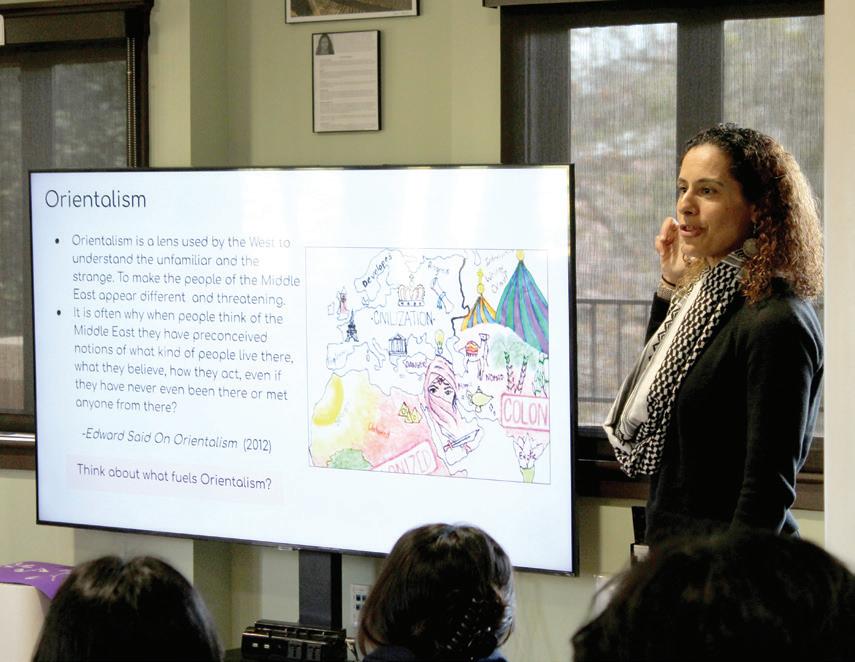
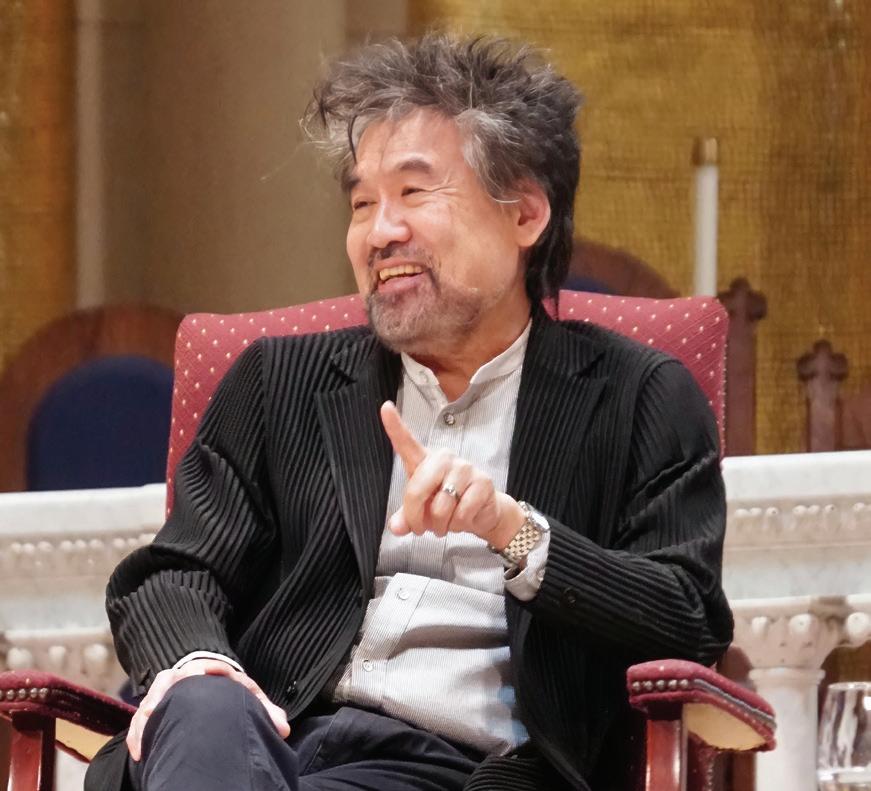
Featured student: Kevin Thor
AAS is proud to feature Kevin Thor, winner of the Albert M. Camarillo Senior Paper Prize. Kevin’s project, “Txoj Kev Hlub: A Hmong Collection of Short Love Stories,” explores intergenerational love and relationships in Hmong communities. Utilizing autoethnography, creative writing, and oral interviews, the project seeks to heal historical traumas of forced displacement that have shaped the Hmong diasporic consciousness. Kevin begins graduate work in Asian American Studies at UCLA this fall.

The Chicana/o-Latina/o Studies program offers interdisciplinary analytical tools for studying the historic and contemporary experiences of US-based descendants of people from Latin America and the Caribbean—a group that is politically complex and ancestrally heterogeneous. The curriculum critically analyzes a broad selection of topics through core courses as well as cross-listed courses in Anthropology, Art and Art History, Comparative Literature, Education, English, History, Sociology, and more.

Featured class: CHILATST 116: Latinx Social Movements
Students in “Latinx Social Movements,” taught by Ignacio Ornelas Rodriguez in spring 2024, visited the Cantor Arts Center where they heard a curatorial talk led by Director Veronica Roberts. Students analyzed artworks by iconic figures such as Narciso Martinez, Jay Lynn Gomez, and Sandy Rodriguez, conducted research on Diego Rivera sketches, and composed essays highlighting artists whose works are influenced by Latinx social movements and contribute to global social justice causes.

Featured event: Ernesto Galarza Lecture
In February 2024, the Chicana/o-Latina/o Studies program produced its flagship annual lecture featuring Professor Emeritus and historian Albert M. Camarillo.
In a talk based on his memoir, Compton in My Soul: A Life in Pursuit of Racial Equality (SUP 2024), Camarillo wove personal family stories together with histories of a notorious place to illuminate the progress and challenges of the changing U.S. racial landscape. The well-attended event was a highlight of the year.
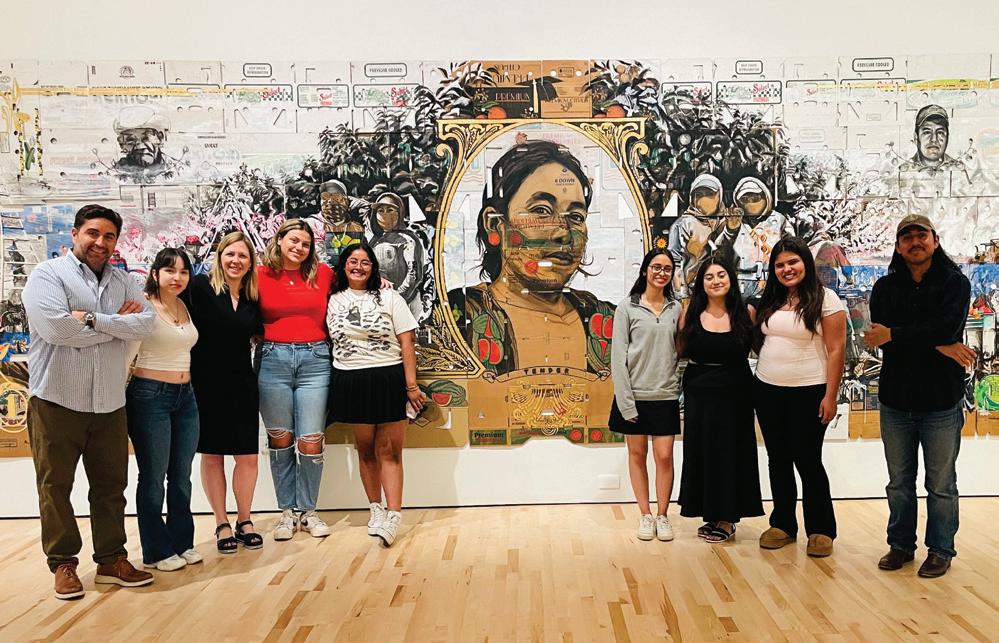
Featured class: CHILATST 100: Introduction to Latinx Studies
In Fall 2023, students in Ignacio Ornelas Rodriguez’s course, “Introduction to Latinx Studies,” had the opportunity to explore Special Collections at Green Library where they delved into significant Latinx collections, including the Ernesto Galarza and Cherrie Moraga papers. A highlight of the visit was a lecture by Roberto Trujillo, Associate University Librarian for Special Collections, whose curatorial efforts have transformed Stanford into a premier hub for studying the Chicanx experience.
The Native American Studies program offers an array of courses across several disciplines including Psychology, History, English, Creative Writing, Education, Archaeology, Medicine, and Law. All emphasize scholarship and ethical engagement rooted in Indigenous ways of knowing. Representative courses include Federal Indian Law, Native American Creative Writing, Understanding Racial and Ethnic Identity Development, Pueblo Revolt, Indigenous Peacemaking, and American Indian/Alaska Native Mental Health.
Featured event: “Land, Language & Learning: Living in Right Relations,” Jan Hare Stanford community members and Bay Area educators came together for a lecture on Indigenous education by University of British Columbia Professor Jan Hare. Hare discussed national efforts seeking to redress legacies of colonialism, imperialism, and racism by focusing on the promise of a transformative Indigenous-Settler reconciliation and argued in favor of developing educational systems that are accountable and responsive to Indigenous communities and learners.
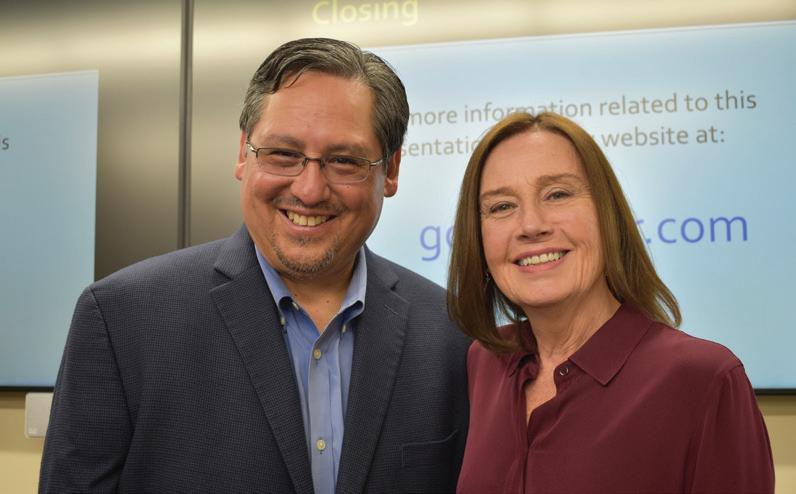
Featured lecturer: A-dae Romero-Briones
Romero-Briones is a citizen of Cochiti Pueblo, where she comes from the Romero family and is eligible for enrollment in the Kiowa Tribe of Oklahoma through the families of Ware, Komalty, Toyekoyah, and Amauty. Formally trained in food and agricultural law, Romero-Briones works directly with Tribal nations in the philanthropic, Tribal government, and non-profit sectors. At CCSRE, she teaches a course entitled “Tribal Food Sovereignty” that focuses on the importance of Indigenous food systems.

Featured event: “Re-Counting Coup: Communicating Indigenous Vitality in the Age of Historical Trauma,” Joe Gone
In his talk at the Faculty Seminar Series, Harvard Professor Gone introduced a lively CCSRE audience to a “neotraditional” approach that adapts traditional stories about war deeds to a modern context. His concern is to improve Indigenous mental health and create a culture of “survivance.” Gone was welcomed by Faculty Director of Native American Studies Teresa LaFromboise. Professor of Psychiatry Shashank Joshi served as his respondent.

Jewish Studies offers a vibrant interdisciplinary program for the study and understanding of Jewish cultures, literatures, languages, religion, education, politics, and history. In addition to offering courses across the disciplines, including classes focused on the racialization of Jews, Jewish Studies puts on public events and conferences, promoting the scholarship of a world-class faculty and graduate students from various fields.

Featured event: Antisemitism Teach-in
Featured course: JEWISHST 112: Passing: Hidden Identities Onscreen
In Spike Lee’s BlacKkKlansman (2018), a white Jewish policeman and a Black non-Jewish policeman pass as white Christian KKK members to bust a local chapter. This tale, adapted from true events, provided material for Jonathan Branfman’s course. By analyzing how the two protagonists face related racial dangers from the Klan but face different levels of racial safety in everyday life, students gained insight about the commonalities and differences between antisemitism and racism in the U.S.
In November, students assembled for a conversation about antisemitism, its history, and its current iterations led by Rowan Dorin (History), Steven Zipperstein (History) and Ari Kelman (Education). They spoke to the particularities of American antisemitism, including at Stanford. Reflecting on the event, Dorin writes, “The event demonstrated how our scholarship can bring clarity to our fears and frustrations—and hopefully created space for ongoing dialogue.”


Featured student: Joey Friedman, Winner of the Donald and Robin Kennedy Undergraduate Award for Best Thesis Friedman’s thesis, “The Soul of the World Weeps Through Us: Constructing a Grief Ritual Performance as a Counter to Colonial Violence” explores Indigenous and Jewish diasporic wisdom to confront colonial violence and collective trauma. It draws upon the scholarship of Healing Justice activists as well as the author’s own Jewish lineage to grapple with diasporic survival amidst colonial violence. These threads inform a ritual performance grieving the Israeli occupation and destruction of Gaza.
In 2023, the Center for Comparative Studies in Race & Ethnicity applied for and received the Curriculum Transformation Grant, a seed funding opportunity hosted by the Center for Teaching and Learning (CTL). The grant supported the Academic Programs team as they embarked on transforming the core course sequence for our five undergraduate programs. Three new core courses were piloted in 2023-24.
CSRE 101A: Indigeneity and Colonialism
This course focuses on imperialism, colonization, and displacement. By looking at the impact of colonialism (e.g., slavery and genocide) and its legacies in current systems of oppression (e.g., borders and dispossession), students understand how these systems work in tandem, how they impact marginalized communities, and how they can be traced back to issues of racial capitalism.
CSRE 101B: Institutions and Inequities
This course offers frameworks for understanding institutional racism, racial capitalism, and the historical and contemporary ways through which these forces reinforce and maintain racial inequity across a variety of social sectors (e.g., health, media, education, criminal justice, and the environment).
CSRE 101C: Resistance and Liberation
This course investigates strategies for racial and economic liberation by analyzing past and present social justice movements. Students will be exposed to theoretical frameworks for liberation (e.g., abolition, resistance, mutual aid, and rematriation) and engage with how they are applied.

“In ‘Resistance and Liberation’ I learned how to engage with history as a tool and resource to help present-day resistance movements.”
- CSRE 101C Student
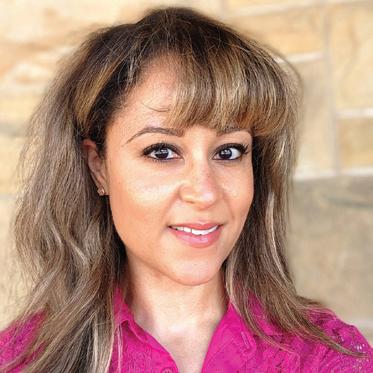

Associate Professor of Political Science Lauren Davenport was recognized for her cross-listed course “Racial-Ethnic Politics in the U.S.,” which explored how race relates to political behavior and public policy. Her nominators praised her as a model of outstanding teaching and mentorship who allowed them to connect their daily experiences to cutting-edge research on identity and who showed deep care and commitment to students’ well-being and academic pursuits.
Associate Director of Asian American Studies Michelle Dinh was recognized for her outstanding pedagogy in core and elective courses including “Introduction to Asian American Studies,” “Sexual Violence in Asian America,” and a new gateway course, “Institutions and Inequities.” Michelle meets student demand with incisive and compassionate teaching, creative assignments, and special events outside of the classroom, such as a teach-in on Abolition in Asian America.
The Ph.D. Minor in Comparative Studies in Race & Ethnicity provides graduate students with a broad interdisciplinary background and prepares them to teach courses in comparative race studies. This year, CCSRE offered its full suite of Ph.D. Minor core courses, including three quarter-long workshops and a Theories and Methods course taught by CCSRE Director Paula Moya. The program continues to be a success, with more than 36 declared doctoral students.
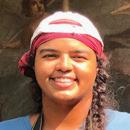
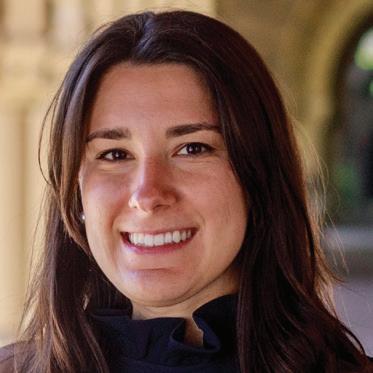
Paula is a Ph.D. candidate in the Classics department and the Stanford Archaeology Center. She is a Roman archaeologist whose research examines representations of Aethiopians in ancient Roman art. She works every summer as a trench supervisor at the Tharros Archaeological Research Project in Sardinia. As a RAISE Doctoral Fellow, she is developing a podcast about the history of Black studies in the ancient Mediterranean world.
Alexia graduated with a Ph.D. in Linguistics with a designation in Cognitive Science. Alexia investigates listeners’ perceptions of, and implicit biases about, the speech of Miami-based Cuban Americans. She discovered that listeners who had more experience with her target population were able to build up complex cognitive structures in their memories that ultimately reduced their biases and stereotyping. In the fall, Alexia will pursue an MBA at the Wharton School.
CBR Fellowships connect undergraduate students with faculty-led research projects that advance racial justice.
• Jayne Abraham and Grace Peña worked with Jackelyn Hwang (Sociology) on “Gentrification and Residential Instability in Oakland”
• Emily Ocasio and Hana Spahia worked with Grant Parker (Classics) on “Museum of Storytelling”
• Christine Kang and Ava Mendoza worked with Matthew Clair (Sociology) on “Systems Navigator Project with Santa Clara County Public Defender”
• Rachel Zila Hidalgo worked with Cristina Vélez (Technology and Racial Equity Fellow) on “Transnational Data Collaboratives through the EU Digital Service Act (DSA): Advancing Platform Research for Latin American Feminist Organizations”
• Michelle Mairena worked with Selene Yang (Technology and Racial Equity Fellow) on “Feminist Geospatial Data Creation”
• Hawthorn Bolger-Witherspoon worked with Kiado Cruz (Technology and Racial Equity Fellow) on “Digital Empowerment: Bridging Divides for Marginalized and Indigenous Communities in Oaxaca, Mexico - A Community Data Governance Initiative”
• Michelle Kalu worked with Jepchumba Cheluget (Technology and Racial Equity Fellow) on “Sustainable Livelihood Toolkit for Digital Africans”
CCSRE CBR Fellowships are made possible by funding from the Vice Provost for Undergraduate Education and the Digital Civil Society Lab.
Praxis Fellowships are hands-on summer fellowships that enable CCSRE undergraduates interested in social change, activism, community organizing, and research to work directly with community partners.
• Meseret Berhane, Afro Urban Society
• Sherlock Langevine, Data Nutrition Project
• Vanessa De Leon Sarmiento, Filipino Advocates for Justice
• Anna Perronne and Brenda Roque, Somos Familia
• Nhi Buu Nguyen, Stop AAPI Hate
• Quincy Bailey, TGI Justice Project
CCSRE Praxis Fellowships are made possible by funding from the Haas Center for Public Service, the Mellon Foundation, Chicana/o-Latina/o Studies, the Vice Provost for Undergraduate Education, and the Escobedo Fund.
Members of the CCSRE Undergraduate Council design events that strengthen the CCSRE community, represent CCSRE majors and minors in matters that affect the student experience, liaise with community centers and other on-campus partners, and ensure that majors and minors have the tools and resources they need to succeed in the program.
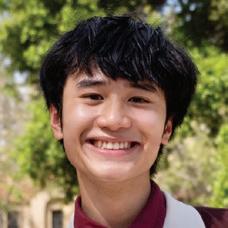


Phong Nguyen, Asian American Studies
Jackeline Adamary May Can, Chicana/oLatina/o Studies
Chana Lanter, Jewish Studies

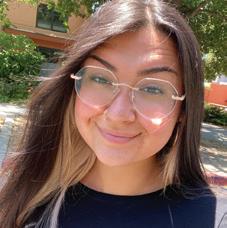

Nena Naat'áanii Dorame, Native American Studies
Emily Rodriguez, Comparative Studies in Race & Ethnicity
Leila Tamale, Undergraduate Council Coordinator


The 19th Annual Kieve Lecture featured the work of award-winning playwright, performer, and producer Virginia Grise. In a lyrical and moving performance lecture, Grise described how she developed a multimedia collaborative project adapting Helena Maria Viramontes’ monumental novel Their Dogs Came with Them to the stage. Years in the making, and employing a wide variety of disciplinary forms, Grise’s adaptation involved collaborators from across the country. At Stanford, Grise’s performance featured CCSRE faculty affiliates Jonathan Rosa (GSE), Rose Salseda (Art & Art History), and Samer Al-Saber (TAPS) alongside TAPS PhD student Maria Zurita Ontiveros. The week prior, CCSRE Director Paula Moya set the stage with a conversational lecture on Viramontes’ novel at El Centro Chicano y Latino.

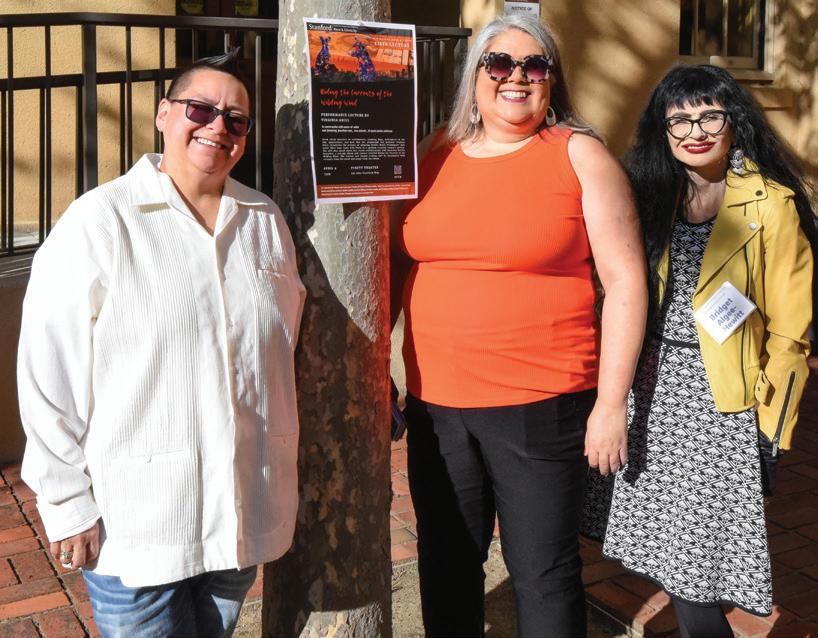

The Research Institute drives interdisciplinary knowledge production through cutting-edge programming and thought leadership on the comparative study of race and ethnicity.
The Faculty Seminar Series features talks that showcase the research of Stanford faculty and distinguished visiting scholars from around the globe who are actively engaged in the production of cuttingedge interdisciplinary knowledge on issues related to race, ethnicity, and inequality across all fields.


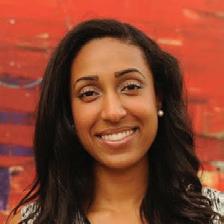
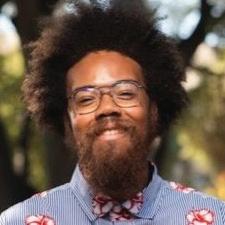
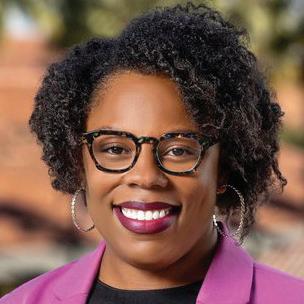


• Oct 18—Joseph Gone (Harvard University, History), “Re-Counting Coup: Communicating Indigenous Vitality in the Age of Historical Trauma,” in conversation with Shashank V. Joshi (Psychiatry & Behavioral Science)
• Oct 25—Gabriella Safran (DLCL), “Jewishness, Voice, Comedy, and Space,’’ in conversation with Jonathan Rosa (Graduate School of Education)
• Nov 8—Farzana Saleem (Graduate School of Education), “Healing and TRANSFORMing,” in conversation with Philip Fisher (Graduate School of Education)
• Jan 17—Elliott White (Earth System Science), “Life on the Margins of Society and the Environment,” in conversation with Andres Cardenas (Epidemiology and Population Health)
• Feb 7—Alicia Sheares (Management Science & Engineering), “The Racialized Legitimation Strategies of Black Tech Entrepreneurs in Silicon Valley and Atlanta,” in conversation with Bridget Algee-Hewitt (CCSRE)
• Feb 21—Vasiliki Fouka (Political Science), “Discrimination and Muslim Integration: Evidence from Europe,” in conversation with Alexander Key (DLCL)
• May 1—Rodolfo Dirzo (Earth System Science), “The Biological and Cultural Richness of our Planet in the Era of Global Anthropogenic Impact,” in conversation with Ramón Saldívar (English & DLCL)
The Faculty Research Fellows Program fosters knowledge production on race and ethnicity among Stanford faculty by supporting the research of three scholars who have recently published books on race. The program sponsors quarterly Chautauquas (book salons) that feature the chosen Fellows’ works.

• Nov 15—Destin Jenkins (History) on The Bonds of Inequality: Debt and the Making of the American City, in conversation with Zephyr L. Frank (History)


• Jan 25—Asad L. Asad (Sociology) and Javier Zamora (Distinguished Speaker) on Engage and Evade: How Latino Immigrant Families Manage Surveillance in Everyday Life in event moderated by Alfredo Artiles (GSE)
• May 8—Jisha Menon (Theater and Performance Studies), Brutal Beauty: Aesthetics and Aspirations in Urban India, in conversation with Aileen Robinson (Theater and Performance Studies)
In partnership with the Stanford Digital Civil Society Lab (DCSL), the Technology & Racial Equity Practitioner Fellowship supports social sector leaders committed to projects that advance justice at the intersections of race and technology.


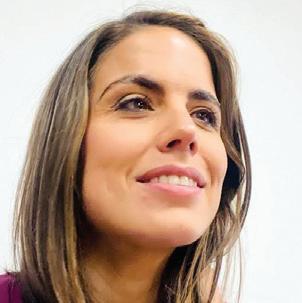

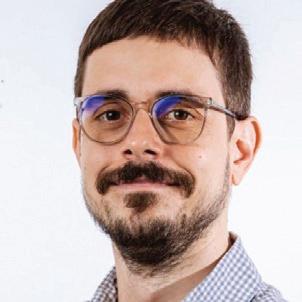
• Jepchumba Cheluget
Sustainable Livelihood Toolkit for Digital Africans
• Melquiades (Kiado) Cruz
Digital Empowerment: Bridging Divides for Marginalized and Indigenous Communities in Oaxaca, Mexico— A Community Data Governance Initiative
• Cristina Vélez
Transnational Data Collaboratives through the EU Digital Service Act (DSA): Advancing Platform Research for Latin American Feminist Organizations
• Selene Yang
Feminist Geospatial Data Creation: Finding Spatial Justice through Digital Collective Practices of Care in Latin America
• André Ramiro
A Human Rights-Based Accountability Framework for Halting Government Hacking Abuses
• Paula Moya (English and CCSRE)— The Perfecto Project
• Grant Parker (Classics and African & African American Studies)— Aftermaths of Enslavement: Curating Legacies
• Jisha Menon (Theater and Performance Studies) and David Sklansky (Law)—Imagining Justice
• Sarah R. Levine (Graduate School of Education), Emily Rainey (University of Pittsburgh, English) and Paula M. L. Moya (English)— Expanding the Discipline
CCSRE Faculty Research Networks bring together Stanford faculty, postdoctoral fellows, graduate students, and visiting scholars to generate innovative interdisciplinary knowledge on race and ethnicity.
Rose Salseda (Art & Art History)Latinx Art Beyond Museum Walls
Usha Iyer (Theater and Performance Studies) - Black and Brown Intimacies Across Africa, South Asia, and the Caribbean
CCSRE supports interdisciplinary graduate student teaching and research through three graduate award programs open to incoming and advanced Ph.D. students. Students participate in a biweekly workshop in which they share research, meet with faculty, and develop comparative and interdisciplinary perspectives on the study of race and ethnicity.

Kelsey Chen (Modern Thought & Literature)
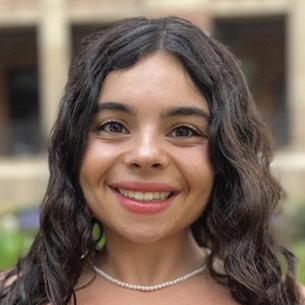
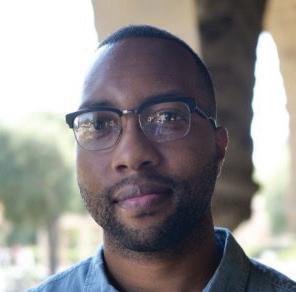
Lavar Edmonds (Economics)

Daniella Efrat (Sociology) Bryn Evans (Art History)

Alexandros Avila Orphanides (Graduate School of Education)

Kesley Townsend (Political Science)

Sunidhi Pacharne (Anthropology)

Anisa Yudawanti (Graduate School of Education)

Neida Ahmad (Graduate School of Education) “‘We’re All Collectively Fearless’: Enacting, Subverting, and Resisting Restrictive Language Policies”
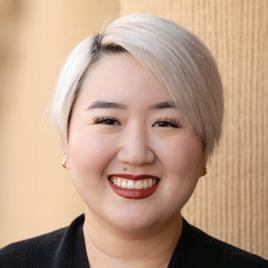
Candice Jeehae Kim (Graduate School of Education) “‘We All Have These Big Dreams’: Centering the Counterstories of Multiply Marginalized Students of Color Across the Medical Education Trajectory”

Chepchirchir Tirop (History) “Competitive Running and the Global Politics of Decolonization and Nation Building in Kenya, 1945-2016”
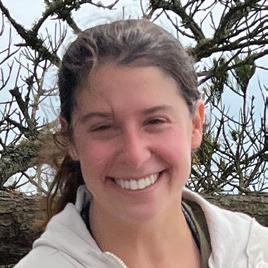
Sophie Allen, Community Engagement Fellow (Sociology and Law School)
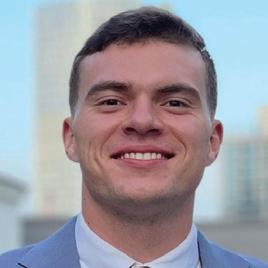
Nikolaj Ramsdal Nielsen, Senior Seminar Coordinator (Comparative Literature)

Hesu Yoon, CCSRE Teaching Fellow (Sociology)
The CRC is a multi-university partnership that includes the Center for the Comparative Studies in Race & Ethnicity (CCSRE) at Stanford; the Center for the Study of Race and Ethnicity in America (CSREA) at Brown University; the Center for the Study of Race, Politics and Culture (CSRPC) at the University of Chicago; and the Center for the Study of Race, Indigeneity, and Transnational Migration (RITM) at Yale University.

CCSRE collaborated with Yale University and Brown University to put together a series of candid discussions about the difficulties instructors face in teaching undergraduate students about race. Stanford speakers included Usha Iyer (Art & Art History) and Eujin Park (Education); Yale speakers included Hi’ilei Hobart (Native and Indigenous Studies) and Greta LaFleur (American Studies and Women’s, Gender, and Sexuality Studies); and Brown speakers included David Rangel (Education) and Matt Guterl (Africana Studies and American Studies). Topics ranged from “Teaching Texts Featuring Explicit White Supremacist Violence” to “Centering Care and Accountability When Teaching Critical Theories of Race.”


Eujin Park, Stanford Faculty Speaker Usha Iyer, Stanford Faculty Speaker
The CCSRE Mellon Arts Fellowship Program supports working artists who live and create in California. Dedicated to centering the study of race in the arts and humanities, this arts program, like the consortium writ large, combines research with arts practice. The program is funded by the Andrew W. Mellon Foundation.
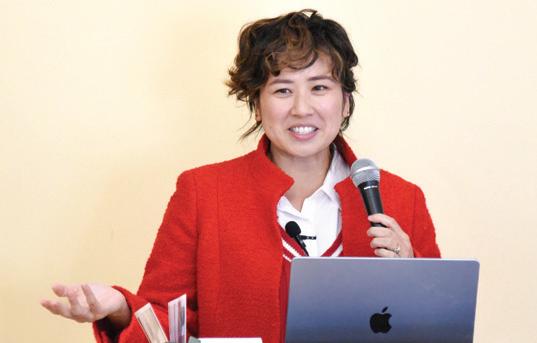
Kim Ye: A Chinese American multimedia artist, content creator, and live performer whose researchbased practice engages gendered constructions around power and the entanglement between public space and private desire.

Rodrigo Reyes: A filmmaker, director, and documentarian, Reyes is deeply grounded in his Mexican immigrant identity, using striking imagery to portray the contradictory nature of our shared world while revealing the potential for transformative change.
On May 22, the Research Institute of CCSRE held an Open House to showcase the important research and professional accomplishments of the CCSRE community of faculty, staff, fellows, and students. Designed as an opportunity for knowledge sharing, the Open House brought together and strengthened the intellectual, collaborative, and personal relationships within our vibrant Center and Institute while building new networks campus-wide.

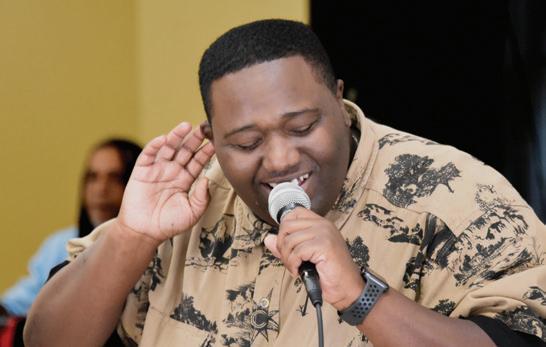
Isaiah Berry Phillips: Born in East Palo Alto, Phillips is a hip hop artist, producer, and choreographer whose nationally relevant work focuses on coping with loss and striving for self-actualization as a black man in America.

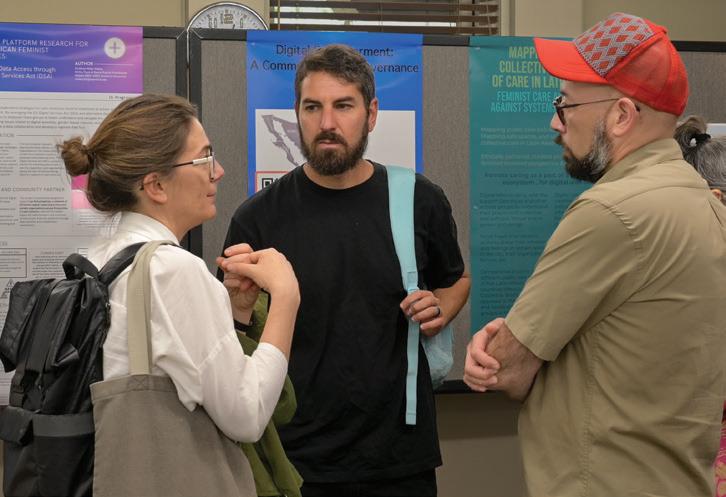
1. Alfredo Artiles
2. Kesley Townsend
3. From left: Ximena Briceño, Joseph Wager, Rodrigo Reyes.
4. Ramón Saldívar and Michael Wilcox
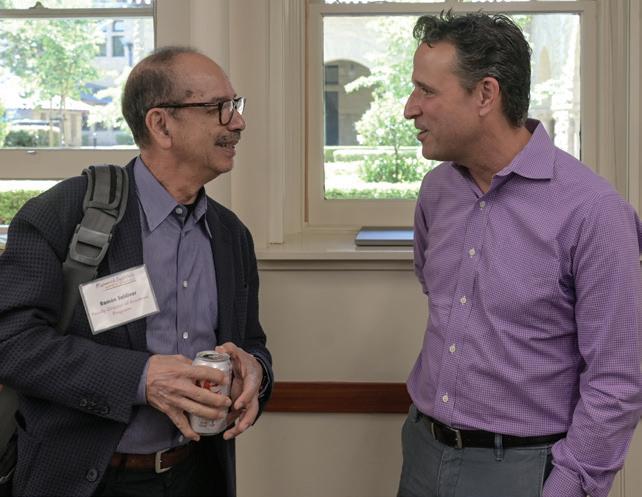

“I feel profoundly grateful, in our time together as students of ethnic studies, to have met so many poets and filmmakers, artists and storytellers who have helped me to imagine vivid and hopeful futures for all of us, who have inspired me to know that we will see those futures in our lifetimes.”
–Mahina Kaomea, 2024 CCSRE Commencement Speaker






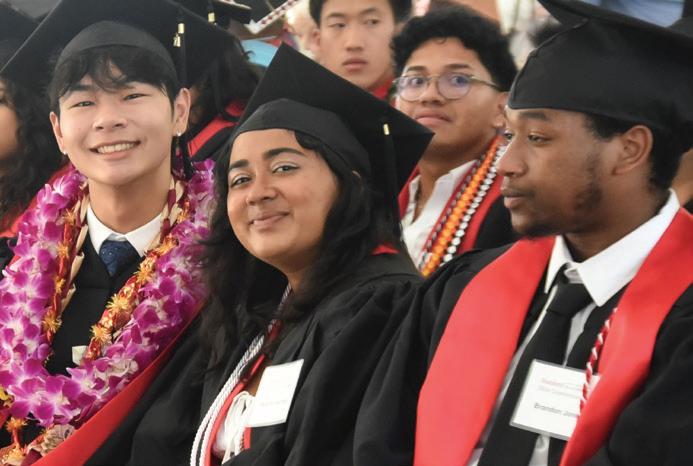
The CCSRE Honors Thesis Program allows CCSRE majors, minors, and interdisciplinary Honors students to apply their skills, knowledge, and political commitments to the year-long investigation of a focused research question.
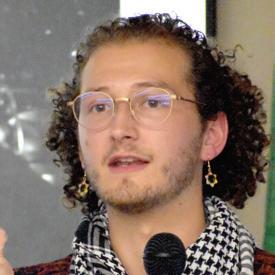

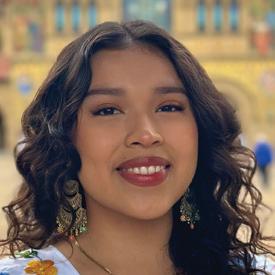
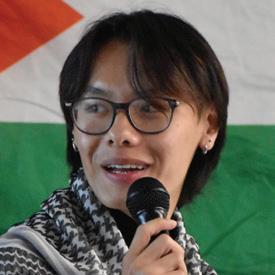
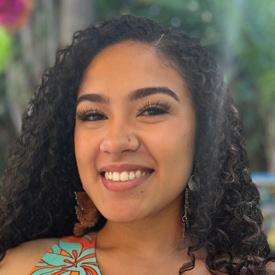
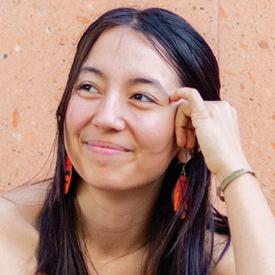
Joey Friedman, “The Soul of the World Weeps Through Us: Constructing a Grief Ritual Performance as a Counter to Colonial Violence,” advised by Ariel Evan Mayse (Religious Studies)
Mahina Kaomea, “Weaving Fine Baskets of Resistance: Genealogizing to Histories and Futures of the Stanford Native Community,” advised by David PalumboLiu (Comparative Literature)
Jackeline May Can, “U Tsikbalilo’ob k Kaajo’ob: Intergenerational Maya Peninsular Narratives on Identity, Community, and Futures,” advised by Ramón Antonio Martínez (Graduate School of Education)
Chali Lee, “To Be Queer Hmong: Hmong Family Formation and Queer Hmong Identity Formation,” advised by Eujin Park (Graduate School of Education)
Leila Tamale, “Fakatapu Ki He Hikūle’o: A Pasifikafuturist Remaking, Restoring, and Honoring of Tongan Genealogy and Our Divine Feminine,” advised by Adam Banks (Graduate School of Education)
Kyra Dorado Teigen, “Ating mga Tinubuang-Lupa: Engaging Kapwa and Tabi Tabi Po through Community ArtMaking,” advised by David Palumbo-Liu (Comparative Literature)



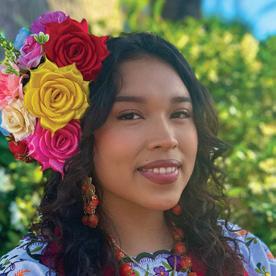
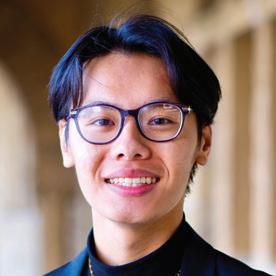

Kevin Thor
Albert M. Camarillo
Senior Paper Prize (shared award)
tuesday utz
Albert M. Camarillo
Senior Paper Prize (shared award)
Mahina Kaomea
George M. Fredrickson Award For Excellence In Honors Research
Jackeline May Can Arturo Islas, Jr. Prize
Chali Lee Award for Excellence in Honors Thesis Presentation
Emily Rodriguez
Margarita Ibarra
CSRE Community Building Award
CCSRE-SHC International Visitor:
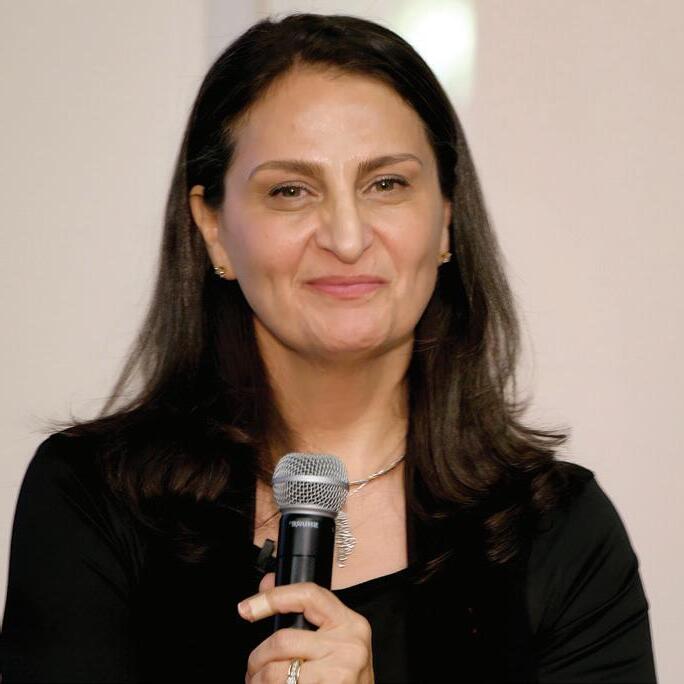
In May, CCSRE nominated and hosted Dr. Sahera Bleibleh, a scholar of urban planning and public space, as an International Visitor at the Stanford Humanities Center. In her talk, “Cultural Heritage Lost: The Impact of War on Palestinian Identity and Memory, Dr. Bleibleh defined cultural heritage as “collective property that tells the history of a people, territory, or a city, and is transmitted from one generation to the next.” She addressed the grave consequences of cultural heritage loss, highlighting the effects on Palestinian history, identity, and existence and underscoring the urgent need to preserve both human and cultural legacies. She noted that the ramifications of the ongoing conflict with Israel will negatively impact Palestinian identity for generations to come, even if and when military engagement finally ends.

Yousef AbuHashem was the inaugural CCSRE-Markaz Palestine Fellow. He was a student consultant to the Muslim, Arab, and Palestinian (MAP) Communities Committee and organized events about Israel’s genocide case in the International Court of Justice. Coming from Gaza, Yousef sought to showcase the beauty, warmth, complexity, and struggle of the Palestine he knows well.

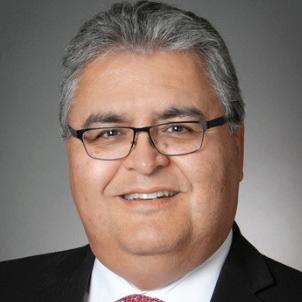
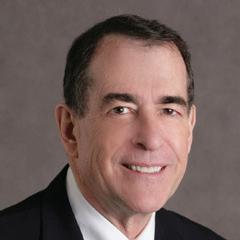
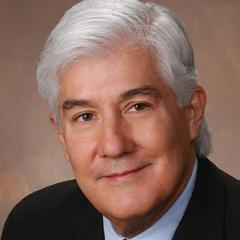
Valerie Red-Horse Mohl (Board Chair) Co-Founder @Known and Chief Financial Officer, East Bay Community Foundation
Victor Arias, Jr. Managing Director, & Partner in Charge, Diversified Search
Loren Kieve Principal, Kieve Law Offices
Raymund Paredes Former Commissioner of Higher Education, Texas Higher Education Coordinating Board


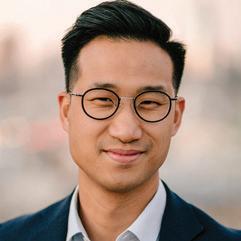
Roger A. Clay, Jr. President of the Insight Center for Community Economic Development (Retired)
Sheela Subramanian Vice President, Future Forum, Slack
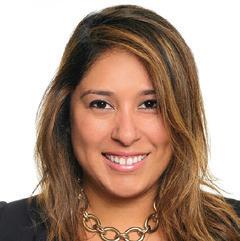

Henry Tsai Product Manager, Civic and Elections Products @ Meta
Veronica Juarez Social Enterprise Investor, Scout @ Lightspeed Venture Partners; Founder, arturo advisory
Reiko Osaki President and CEO, Ikaso Consulting

–Virginia Grise